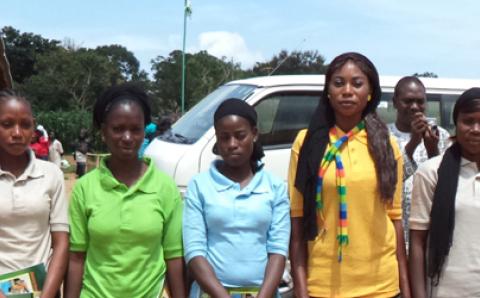In June 2016, the synod of the Christian Reformed Church will receive an important report from a study committee. That committee is tasked with providing pastoral guidance to churches, pastors, church leaders, and members on appropriate ministry and expectations in a culture where same-sex marriage is increasingly legal and common. We should add bisexual and transgender people as well, since their pastoral needs may be quite similar. To use “person first” language, we can simply speak of people with same-sex attraction and people with opposite-sex longings, meaning persons who wish to be the opposite of their given sex.
In the four sentences above, the anxiety of readers in the heterosexual community has probably already emerged into the light of awareness. What will this writer say? Will his words be biblical? Will he hold the line against the attitudes of North American society that are accepting of homosexual and transgendered presentations of gender identity? Will he truly appreciate the struggles of those in the gay community? So quickly the lines are drawn in the sand. This topic has the power to bring strife and division to families and friendships as well as congregations and denominations—instead of bringing the shalom that we are called to seek in our fellowship together.
But why is this conversation so difficult? In this article we’ll consider some possible reasons why people in the heterosexual community may struggle to address this issue wisely and biblically. To be clear, this article is not intended to address the ethical issues around sexual behavior. Instead, it is written to our heterosexual community, and it intends to examine some possible reasons for such high anxiety. Our gay, lesbian, bisexual, and transgender members are invited to listen in.
To begin, we are people of the Book. We live under God’s Word. For this reason we carefully hold our interpretations of Scripture as foundational for our understanding of our triune God and our understanding of ourselves. Scripture must guide our behavior—in this case, our sexual behavior. If there is even one verse in the Bible that speaks a certain word, we take that word seriously. We are protective of our understandings of biblical truth. Understandably, anxiety arises when it appears that Scripture may be interpreted in new and different ways.
But there is much more that confronts us. This has to do with “the beam in our own eye” (Matt. 7:3) when it comes to our anxiety about our own sexuality. In this very broken world, all of us struggle to some degree with our sexuality. Managing sexual feelings is often a challenge in our Christian living. Consider our unusually harsh responses to sexual sinners in general. We say that one sin is as bad as another. And yet, when it comes to sexual sins such as committing adultery or viewing pornography or feeding sexual compulsions, our response within the Christian community may be especially punitive.
As heterosexual persons, we consider ourselves “straight,” fitting the creational norm; we think of those who struggle with same-sex attraction and opposite-sex longings as obviously “crooked.” But this use of language both protects us and betrays us. Calling ourselves “straight” certainly makes a clear distinction between those who are heterosexual and those who are other. But it may also lend itself to heterosexual pride—the sin of self-righteousness. Better that we recognize that, along with our gay, lesbian, bisexual, and transgender neighbors, we are all pretty “crooked.” But once again, this reminder may cause anxiety.
Consider also how homophobia, which is so present in our gay-unfriendly culture, is, in part, the stepchild of patriarchy. As long as the so-called “masculine” is valued more than the so-called “feminine,” we will continue to push away, disown, and even condemn men who are identified with “feminine” traits. This reaction is what caused two young men to pistol-whip Matthew Shepard to death on a fencepost outside of Laramie, Wyoming, in 1998. I say “so-called” because our cultural definitions of “masculine” and “feminine” are so different from biblical understandings of gender and what it means to be a man or to be a woman. Playing football or sewing are best thought of simply as human activities. Now, this only explains homophobia in part. Only when women are valued equally with men will homophobic fear of the “feminine” within men, subside. Otherwise, homophobia is pretty much locked in place both in church and society.
In Matthew 7, Jesus draws quite a contrast between the beam in our eye and the speck in the eye of another. Our Lord calls us to the discipline of careful self-examination. This includes owning our part in the bias and painful discrimination against those who struggle sexually in ways that are different from our own sexual difficulties. Especially as we approach the table of the Lord, we are called to see “if there is any sin within us.” And, of course, there is. Naming that sin is the first step in receiving forgiveness and disciplining ourselves to move beyond bias and rejection to inclusive care of people who struggle with different sexual identities. But this is a very difficult spiritual challenge.
Such spiritual discernment would inevitably lead us toward becoming friendly with fellow parishioners who struggle, often in silence, with same-sex attraction or opposite-sex identification. Yes, we will become “gay person-friendly.” To be like Jesus is to be especially attentive to any who are outcast—the marginalized of Jesus’ day or those within the LGBT community today who are pushed away. “All are welcome in our worship and our fellowship” must mean what it says. Unless there is a relationship to build upon, sharing our own biblical understanding is experienced as exclusion and condemnation. But within a relationship, such sharing may lead to inclusion and reconciliation. In this sense, we are all called to be gay person-friendly. Otherwise, the love of God never quite gets to them as God intended.
So as we approach further conversation in the Christian Reformed Church about pastoral ministry among the LGBT community, how can we best prepare ourselves? Several recommendations come to mind.
First, we must continue our commitment, once again together, to a careful, thoughtful hearing of the biblical text. Scripture must speak to us. We must not give in to the temptation, the exegetical error, of reading our wishes or beliefs into the text. The ongoing challenge is to hear the Scriptures tell us God’s truth. On both sides of the conversational fence we must seek to hear God's Word spoken to us. Short-circuiting this critical commitment will keep us in a quandary.
Second, we must affirm a biblical appreciation for human sexuality. As children, many of us were taught a negative view of sexuality that cannot be corrected in the moment of a marriage ceremony. Often because of the fear and anxiety that surrounds sexuality, we push it away. Becoming more comfortable with our own sexuality from a positive biblical perspective may redeem our responses.
Third, we need to allow the Scriptures to shape our understandings of gender instead of the culture’s twisted understandings of gender. Our society teaches that men are “strong” and women are “weak”; men are “hard” and women are “soft.” Yet in Galatians 5:22, where Paul describes the fruit of the Spirit, notice that clearly it’s a package deal. Through the Holy Spirit, all nine of these descriptors should be present within each of us, regardless of gender.
Fourth, we must learn more about homosexuality in general. People may choose behavior, but usually no one chooses to be gay or lesbian or bisexual or transgender. It has become increasingly clear that genetic influence has much to do with homosexual gender presentation. For the rest, we are simply not sure. Much of it may have to do with prenatal biological development that further facilitates a genetic predisposition. We ought never blame parents for the experience of having children with same-sex longings or opposite-sex identification, as if somehow they had failed as parents. Not true.
Fifth, those of us who are heterosexual must imagine what it is like to be gay or lesbian or bisexual or transgender. This has to do with our capacity for empathy. Walking in others’ shoes, imagining what it is like to be what some people hate, is the beginning of good pastoral care in the direction of the LGBT community. It is no accident that so many young gay men and lesbian women consider suicide to escape the suffering they experience.
Sixth, we must practice the spiritual gift of hospitality. We do well to seek friendship at some level with someone we know to be gay, lesbian, bisexual, or transgender. “I would like to get to know you" is a good beginning. For many this is well beyond our usual comfort zone. But let’s consider what Jesus would do. Certainly we all fall short of our Lord’s reaching out for hurting people on the wayside of life. The challenge is to try.
Why Is It So Hard to Talk about Homosexuality?
- The author points out that any conversation about the topic of homosexuality among Christians is likely to provoke anxiety. Is this true for you? If so, what are some of the reasons?
- “Managing sexual feelings is usually a challenge in our Christian living,” says the author. Why is this the case? What steps could we take in our families, churches, and communities to foster a healthier attitude toward sexuality?
- How can we practice hospitality in our worship and our fellowship toward our brothers and sisters in the LGBT community?
- Why is it important for those who are heterosexual to imagine what it is like to be gay or lesbian or transgender, as the author suggests?
- The author suggests that our view of gender influences the way we feel about homosexuality. How does Scripture’s view of gender compare with our culture’s view?
- What might be required for members of the church who have differing interpretations of God’s Word concerning homosexuality to be able to participate in meaningful conversations on this issue?
About the Author
Ron Nydam spent 16 years as a professor at Calvin Theological Seminary. He currently is a pastoral psychotherapist at Pastoral Counseling for Denver Inc. He resides in Denver, Colo. He is the author of Adoptees Come of Age Living Within Two Families and Wise Adoptive Parenting When Kids Struggle to Adopt Their Parents








